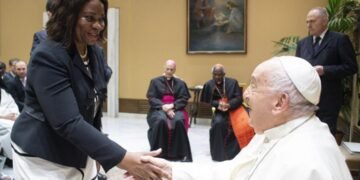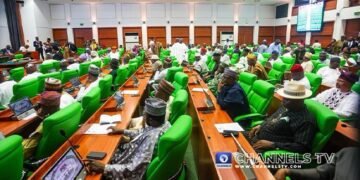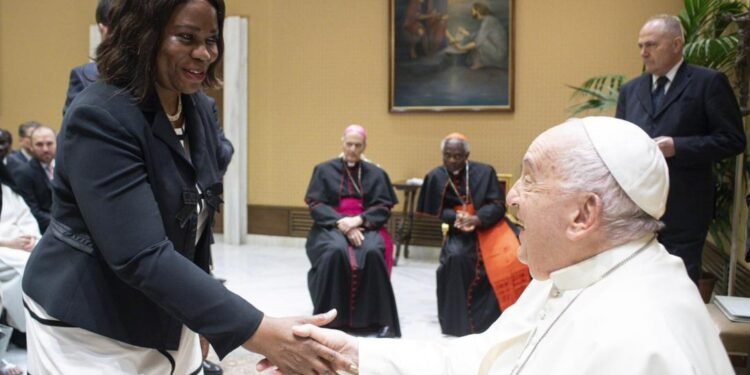By Charles Igwe
Pope Francis, Bishop of Rome and head of the Catholic Church, has called on global financial ministers and leading economists to support an international mechanism to address the foreign debt crisis in the global south. The Pope criticized “poorly managed globalization” for depriving millions of a dignified future.
Pope Francis made these remarks at the “Addressing the Debt Crisis in the Global South” conference, organized by the Pontifical Academy of Social Sciences and Columbia University’s Initiative for Policy Dialogue (IDP). The event saw attendance from over 50 finance ministers, economists, and international development agency heads.
“In the wake of mismanaged globalization, and the pandemic and wars, we face a debt crisis mainly affecting the global South, causing misery and distress and depriving millions of a dignified future. No government can morally require its people to suffer deprivations incompatible with human dignity,” Pope Francis stated.
A recent database from Development Finance International showed that the Global South faces its worst debt crisis, with an average of 38% of government revenue going to debt servicing, rising to 54% in Africa. Matthew Martin presented this debt database to the International Monetary Fund at a Civil Society Policy Forum event during the October 2023 Annual Meetings in Marrakech, Morocco, highlighting that current debt service levels exceed pre-HIPC initiative levels and surpass combined spending on education, health, social protection, and climate by 50% in Africa.
Pope Francis called for a new international financial architecture to break the financial debt cycle, estimated at $313 trillion globally. He advocated for a multinational mechanism based on solidarity, addressing the global nature of the problem and its economic, financial, and social implications. He emphasized principles of justice and solidarity and urged the creation of a new, bold, and creative international financial architecture.
Iyabo Masha, Director of the Intergovernmental Group of Twenty-Four (G24), supported Pope Francis’ advocacy, noting its timeliness. She reflected on the progress made following debt relief programs at the turn of the century, where over a billion people escaped extreme poverty. However, economic upheavals from COVID-19 and the war in Ukraine reversed much of this progress, leading to unsustainable debt burdens and cutting back on key expenditure programs, affecting sustainable development goals.
Ms. Masha explained that many developing nations increasingly borrow from private lenders and hedge funds, exposing them to volatile interest rates and complicated economic conditions. High debt service costs force countries into trade-offs between debt service and development objectives, potentially leading to debt crises with long-lasting development distress.
The G-24 endorses Pope Francis’ call for reforming the international financial architecture to achieve debt relief. Ms. Masha emphasized that debt reduction initiatives should be tailored to countries’ economic vulnerabilities and profiles, considering structural features of those vulnerable to natural disasters and external shocks. She highlighted the importance of factoring in governments’ high indebtedness to their domestic banking systems for durable debt relief outcomes.
“The world cannot afford to wait,” Ms. Masha concluded, urging immediate action to resolve sovereign debt distress and support sustainable development.
















































